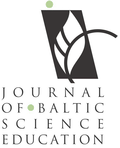| Abstract | During the last decades interest in humanities has dominated the social sciences. As a result, natural science has been neglected, in spite of it being critical to the understanding of the causation of all the disasters occurring in different parts of the world. It is becoming more difficult to select students in science study programmes because there are fewer opportunities for such students due to the economics of globalization trends.
“Natural science only for scientists!” is the common view of the society. Opinion polls reveal little interest in chemistry, physics and biology. On the other hand, other viewpoints in public debates point out the importance of natural science studies in national curricula, since it is already part and parcel of general education. Also, many students are eager to take it up as an optional course.
Professor Svein Sjøberg from the Oslo University (Norway), the well-known contemporary specialist in science didactics, is an ardent supporter of this viewpoint. His recently published book Naturfag som allmenndannelse: En kritisk fagdidaktikk [Natural Science as General Education: a Critical Didactic] has been reissued not only in Norway (Gyldendal Akademisk, 2004), but also published in Sweden (Studentlitteratur, 2000) as well as reissued by Studentlitteratur in 2005. In early 2005, a translation of this book appeared in Denmark (Klim, 2005) during the 8th Nordic Symposium Nature Science at School.
What is the driving interest for this book being republished several times? It is most likely due to the author’s thorough insight into natural sciences. Being a physicist, he considers science from the social and intercultural aspects. Prof. S. Sjøberg has given four arguments for the necessity of natural science studies in the curriculum of secondary schools: economics, democracy, culture and usefulness.
The author examines the concept of Scientific Literacy through scientific illiteracy and the interdisciplinary link between nature studies and technology. Also, gender differences are analysed from the natural science point of view. These issues relate to science didactics and the author bridges the gap with pedagogic principles.
Each issue addresses specific local problems for each particular country. The latest editions contain a chapter about the author’s own Project ROSE (The Relevance of Science Education) and survey results from Norway, Denmark and Sweden. Up to now such results were published mainly in various conference proceedings. We highly appreciate the chapters now available for larger audiences.
Science didactics specialists like Poul V. Thomson and Henrik Busch (Denmark), Helge Strömdahl, Anders Jidesjö and Magnus Oscarsson (Sweden) assisted in compiling chapters on Danish and Swedish issues.
The author admits that his goal was to assess natural science and culture critically, emphasizing its uniqueness and peculiarities and its importance in schools and society. He also wished to start a debate on the role of natural science in general education and, at the same time, to motivate students and teachers alike.
In my opinion the author has achieved his aims, although, individuals may choose to differ. I hope that the book will be translated in the other major European languages: English, German, French, or perhaps even in Russian or one of the Baltic languages?
|
